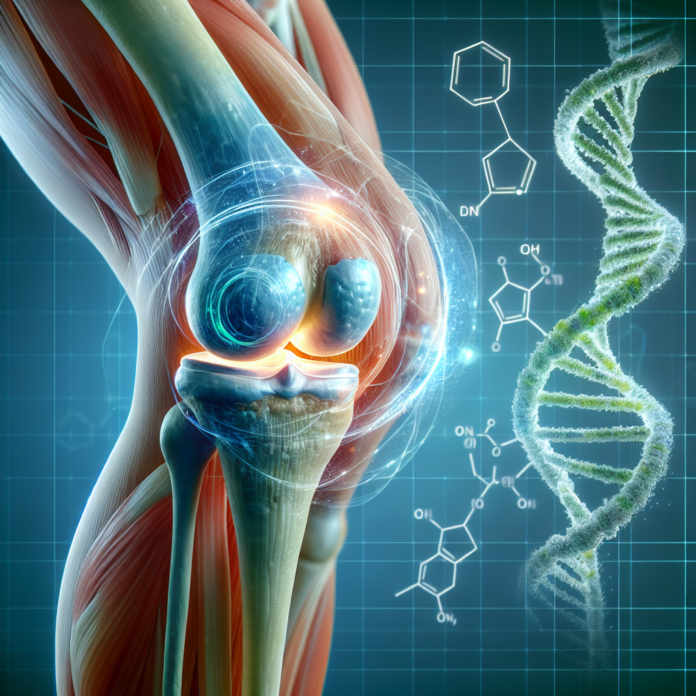In the realm of orthopedic injuries, particularly meniscus tears, there’s a common belief that while these injuries don’t naturally heal on their own, surgical intervention is often the only viable solution. But what if there were non-surgical alternatives that held the promise of regeneration and recovery? Enter the controversial world of peptides, specifically BPC 157. In this installment of the “Ask the Doctor” series, Dr. David Guyer, a renowned orthopedic surgeon and sports medicine specialist, dives into whether this experimental peptide can truly aid in healing a meniscus tear. While its potential as a pain reliever is acknowledged, the evidence for its regenerative capacity remains scant. Join us as we explore the scientific underpinnings of BPC 157 and discuss whether it’s a game-changer or just another hyped-up treatment in the world of sports medicine.
The Challenge of Healing a Meniscus Tear
A meniscus tear can be an incredibly frustrating injury, especially for athletes and active individuals who rely heavily on knee function and stability. The meniscus serves as a shock absorber and stabilizer for the knee, making its role crucial in maintaining knee health and function. Given the limited blood supply to the meniscus, healing without surgical intervention can be challenging. However, the rise of regenerative medicine and peptides like BPC 157 has sparked interest in non-surgical alternatives.
Understanding BPC 157
BPC 157, a peptide derived from a naturally occurring protein in the gastric lining, has been touted for its potential regenerative and healing capabilities. In theory, peptides like BPC 157 can promote cellular repair and growth, offering a beacon of hope for those seeking non-surgical recovery options.
The Experimental Status of BPC 157
Despite its potential, BPC 157 is still considered experimental by the FDA. This status suggests that while it shows promise, more rigorous scientific studies are needed to establish its efficacy, particularly in human trials concerning meniscus tears.
Current Understanding of BPC 157’s Role
- Lack of Blood Supply: One of the main challenges in healing a meniscus tear is its limited blood supply. Without adequate blood flow, the body’s natural healing processes are significantly hampered. BPC 157’s supposed benefits in enhancing blood flow and healing remain largely unproven in the context of meniscus tears.
- Modes of Administration: BPC 157 is typically available in oral or subcutaneous injection forms. Administering it as a capsule or injection poses a challenge in ensuring that the peptide reaches the intraarticular space of the knee, where it could potentially exert a therapeutic effect. Even when injected directly into the knee by a physician, its regenerative efficacy remains scientifically unsubstantiated.
- Pain Relief vs. Regeneration: While BPC 157 may have some role in alleviating pain, its regenerative properties are less clear. For patients seeking symptomatic relief from meniscus tears, it may offer some benefit as a pain management tool rather than a healing agent.
- Alternative Regenerative Treatments: Other regenerative treatments, such as exosomes, stem cells, and Platelet-Rich Plasma (PRP), have been extensively studied and show more promise in promoting tissue repair and regeneration. While peptides like BPC 157 are still in the early stages of research, these alternatives might provide more immediate options for those looking to avoid surgery.
- Human Studies on BPC 157: Currently, there’s a paucity of human studies confirming the regenerative benefits of BPC 157 for specific injuries like meniscus tears. Most available data comes from animal studies or anecdotal accounts, which cannot be reliably extrapolated to human subjects without further research.
Considering BPC 157 with Caution
While the allure of peptides like BPC 157 as a non-invasive repair modality is compelling, it’s crucial to approach them with caution, given their experimental status. Patients must weigh the potential benefits against the current lack of scientific backing.
Consulting Healthcare Professionals
For those suffering from orthopedic injuries, exploring alternatives to traditional surgical interventions can be part of a comprehensive treatment approach, especially if they align with one’s lifestyle and treatment goals. Furthermore, it is vital for patients to consult with healthcare professionals to discuss potential risks and benefits, including any experimental treatments. A well-rounded discussion that includes options like surgery, physical therapy, regenerative medicine, and experimental treatments like peptides can help individuals make informed choices about their knee health.
Remaining Open to Emerging Research
In the evolving landscape of sports medicine and regenerative therapies, ongoing research is paramount. Until more conclusive studies are available, BPC 157 should be viewed as a potential, albeit experimental, part of the broader toolkit for managing knee injuries. Engagement with the topic doesn’t end here. Dr. Guyer encourages individuals to seek professional consultations for personalized medical advice and to remain informed by subscribing to channels or newsletters that provide updates on such evolving treatments.
Conclusion
In conclusion, while BPC 157 represents an intriguing possibility in orthopedic care, its application in healing meniscus tears remains largely unproven. Patients and medical practitioners must continue to rely on evidence-based treatments and remain open to emerging research that might shape the future of meniscus injury management.
